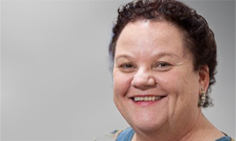GPs have an obligation to see all comers – “Every person needs a medical home in general practice”.
The advent of Primary Health Networks (PHNs) would seem to support this. The work done within PHNs is determined in some part by dedicated funding — to respond to particular recognised medical issues such as mental health and for Aboriginal and Torres Strait Islander communities — and, in part, in response to local need.
There is quite a bureaucracy involved in assessing gaps in local need.
While some of these gaps are related to population health, such as Pap smears or immunisation rates, many relate to the voting electorate — after-hours care and support for conditions which we are told should not be treated in hospitals. (That wonderful metric “avoidable hospital admissions” is not counted but is a trope.)
Where does all that leave the orphans?
Orphan diseases are rare conditions that are not supported by pharmaceutical companies for treatment development because of a lack of likely commercial value. Some 8% of Australians live with one of about 10 000 of these rare diseases.
- Related: MJA InSight — Grattan primary care report right, says GP
- Related: MJA — Embracing value co-creation in primary care services research: a framework for success
- Related: MJA — A Delphi study assessing the utility of quality improvement tools and resources in Australian primary care
- Related: MJA InSight — Rethink new drug approvals
GPs are willing to provide the care needed for these patients. People with orphan conditions need ordinary care, routine immunisation and mental health support, just like the rest of the community.
GPs develop and maintain care plans with associated referrals and attend to the myriad bureaucratic tasks needed to access all resources available. Some of these patients need a degree of special care related to aids like PEG tubes and catheters, or to their own limited ability to manage independently.
GPs providing such services tend to develop their own experience and knowledge. PHNs are providing some support with projects like HealthPathways which can be the repository of such experience so that this could be shared.
How do these patients link up with such GPs?
People with orphan conditions and their families report enormous difficulty accessing primary and secondary care, and face significant challenges in coordination of care and accessing treatments because of time, travel, affordability and organisational difficulty.
PHNs have projects related to coordination of care. We hear of plans for Medicare funding for Medical Homes, a project which will include PHNs.
I worry that the orphans will not figure in this windfall.
PHNs are the coordinating organisations with knowledge of the local GP environment. They have lots of information about what GPs do, what individual practices are resourced to do and what other resources are available to help GPs improve the service they provide.
They are where people with orphan diseases should be able to discover GPs who can provide care for them. PHNs are the places where those GPs can have support and resources to support such patients.
I’d like to see a relationship between the National Disability Insurance Scheme and PHNs so that patients with orphan conditions can find the GP for their own Medical Home, even if that is not part of the planned funded project.
I’d like to see GPs put their hands up to provide care for at least a few complex patients each, perhaps to pick up new skills.
I’d like to see PHNs provide the vehicles to connect people with orphan conditions with GPs who can help them.
I was inspired to write this by two recent events: one where the coordinator of an institution for young adults with head injuries contacted me to find any GP who could provide care for the 35 people who lived there. They were not in my area, but, having tried everything they could think of to attract any GP help, were going out of area in desperation.
In the second, the local public dietitians begged a recent meeting to help access GPs for patients who they support with parenteral feeding. They had nobody to interact with, to help these patients, whose day-to-day medical care was at any local practice, with no GP willing to provide continuity of care.
I challenge our new system of PHNs and GPs to support people with orphan conditions so that allied health professionals and families do not hunt in vain for the reliable, ongoing care that we should all get from our GPs.
Dr Linda Mann is a GP based in Sydney’s inner west and Borroloola, NT. She is a VMO at Royal Prince Alfred Hospital in antenatal care, and the GP Clinical Lead for HealthPathways Sydney. She has a passionate interest in patient care through promotion of the relationship between primary care and the rest of the health care environment.
Latest:
• Review slams Queensland black lung response
• Artificial sweeteners change brain: study
• Queensland’s melanoma cases ‘disproportionate’

 more_vert
more_vert